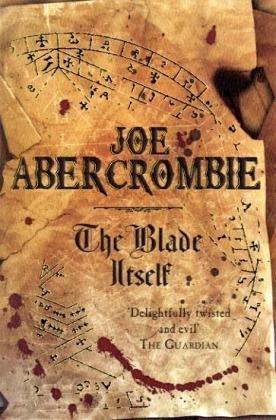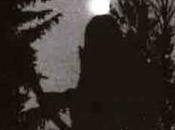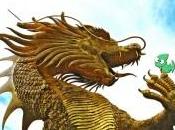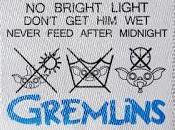 Hello everyone, I’m your favorite Ewan and I’m back after a while with a new fantasy book review. High fantasy, actually, one of those books with knights, damsels, wizards and warriors. A book that comes directly from the UK and I have read in its original language because, even if it was written in 2006, nobody translated it in Italian yet, nor this is going to happen anytime soon.
Hello everyone, I’m your favorite Ewan and I’m back after a while with a new fantasy book review. High fantasy, actually, one of those books with knights, damsels, wizards and warriors. A book that comes directly from the UK and I have read in its original language because, even if it was written in 2006, nobody translated it in Italian yet, nor this is going to happen anytime soon.
Actually, let me tell you something before I get started. Something about the Post Fantasy Series Conclusion Disorder. It’s really hard to say goodbye to a fantasy series, but it happens. Books are not soap operas (at least not all of them) and they come to a conclusion, sooner or later. It can be an everlasting goodbye, an everlasting-but-wait-I-may-write-a-spin-off-novel goodbye, or even a see-you-to-the-next-novel-I-am-going-to-publish-in-2017 kind of goodbye. Yes, I’m talking about George R.R. Martin’s A Song of Ice and Fire series, my latest literary fetish that recently came to a ‘conclusion’ with A Dance with Dragons, much to my despair.
The same happened to me in the past with Harry Potter, but this time I’ve learned from my mistakes.
So, what do you do when you read the last book of your favorite series? You read something similar.
What I needed to overcome the loss of Martin’s series was a fantasy novel with realistic elements and a very epic story, with grey and ambiguous morality and imperfect heroes. Oh, yes, and violent as shit. You don’t find something like that in Italy so easily, believe me.
After some research I discovered Joe Abercrombie, a British writer whose first novel, The Blade Itself, book number one of The First Law Trilogy, looked very much like what I was looking for.
Let’s see then if The Blade Itself was a good replacement for Martin’s A Song of Ice and Fire, or turned out to be a disappointment.
The Fellowship of the Seed
Why do I do this? This is the question that Inquisitor Glokta, one of the main characters of the novel, constantly asks himself. And I’m starting to do the same.
Why do I begin reading trilogies if their books, taken one by one, are non self-conclusive?
This time, I think I’ve found the answer. I do this because, from time to time, I find a book that is like The Blade Itself.
The plot. A powerful and mysterious wizard gathers a fellowship of unlikely heroes. We have the barbarian in exile, a young noble knight in shiny armor, a goofy mage apprentice, a brave female warrior seeking revenge and a pompous and coward sailor/sidekick.
What did you say? It sounds like the premise of every single high fantasy novel written from The Lord of the Rings until now? Something that even a five-year-old boy could come up with and then drop because it is too cliché?
Yes, you would be right. But there’s more.
First, the fellowship gathered by powerful wizard Bayaz, unlike many others I’ve read, works.
Second, the gathering itself is the epilogue of the story told in the book.
I can year you say, You always rant about how important is the plot, even more important than the style itself, and now you positively review a book that doesn’t even have a real plot? That is just a set-up for something that will happen next?
Honestly, if it’s true that I prefer a book with an interesting plot, and if it’s the case I can tolerate a sloppy style, rather than a masterpiece of show don’t tell that is also boring as a lecture on the sexual life of the Russian hamster, I sometimes do the exact opposite. Because I can.
And by that I don’t mean that The Blade Itself doesn’t have a plot or that nothing happens. There is a lot of gruesome fighting, that also happens to be funny as hell, and every character lives his own adventure before crossing his path with Bayaz the wizard.
The main conflict is hinted rather than revealed. The reader knows that there’s a war between the Union and the North, that there’s a Evil Emperor that is just a puppet in the hands of an Even More Evil Dark Overlord. That there’s a heavy chest with something mysterious inside, a legendary weapon that nobody uses, and something called The Seed, that smells a lot of MacGuffin to me. And this is all we know.
The magic world of fantasy
There’s something else to add to the reasons why I liked The Blade Itself. The book works because Joe Abercrombie, much like his inspiration George R.R. Martin before him, subverts the tropes of the genre, instead of writing the same old fantasy story.
So the brave knight in shiny armor becomes a spoiled and annoying kid that recalled to me Richard Rahl from Terry Goodkind’s Sword of Truth series – except that, unlike Richard, Abercrombie’s Jezal dan Luthar is supposed to be annoying. And just like him, the powerful wizard is no Gandalf but a darker version of the typical fantasy mentor, and evil and corrupt Inquisitor Glokta is actually a character with a rich personality and tormented by inner conflict.
Even the kingdom that apparently Bayaz and his fellowship of unlikely heroes are trying to save is not the stereotypical locus amoenus that the reader would expect. Indeed, Midderland is a place full of corruption and political ineptitude, more similar to Martin’s King’s Landing rather that the Shire from The Lord of the Rings. One would ask himself if it’s really worth saving. Or Why do I do this? as Glokta would say.
The whole novel is filled with ambiguous, unconventional morality, especially for a heroic fantasy. It’s more about amorality than virtue, to the point that the more ‘moral’, and therefore sympathetic, of the characters is not the aforementioned knight in shiny armor nor the common man that managed to make a name for himself in the army. Hell, not even the damsel in distress is an example of virtue, because she drinks a lot, she curses and she’s very passive-aggressive when it comes to sex. Actually the only character that I perceived as moral is Logen Ninefingers the barbarian.
Why do I do this?
So, Why do I do this?
Because I like when a fantasy book smells of reality, rather than elven shampoo.
Because the characters created by Abercrombie are all interesting. You should not like them, because they are, in fact, really despicable, but in the end it’s not easy to hate them. Abercrombie manages to describe their personality so realistically that they’re impossible to hate, because they feel real. And this is, for me, what makes a good writer.
Which brings us to the third point: because Abercrombie is an amazing writer. Witty dialogues, fluent prose, yes, there’s some infodump that could have been avoided, but that’s not terrible, after all.
So, if you love fantasy and yet you’re looking for something new, if you’re an orphan of Martin’s A Song of Ice and Fire like me, if you’re looking for something that is cynical, realistic, violent and awesome, gove Joe Abercrombie’s The Blade Itself a chance, because it won’t disappoint you.
Oh, and Fleicia Day liked the book too, so it’s kind of a must-have.






